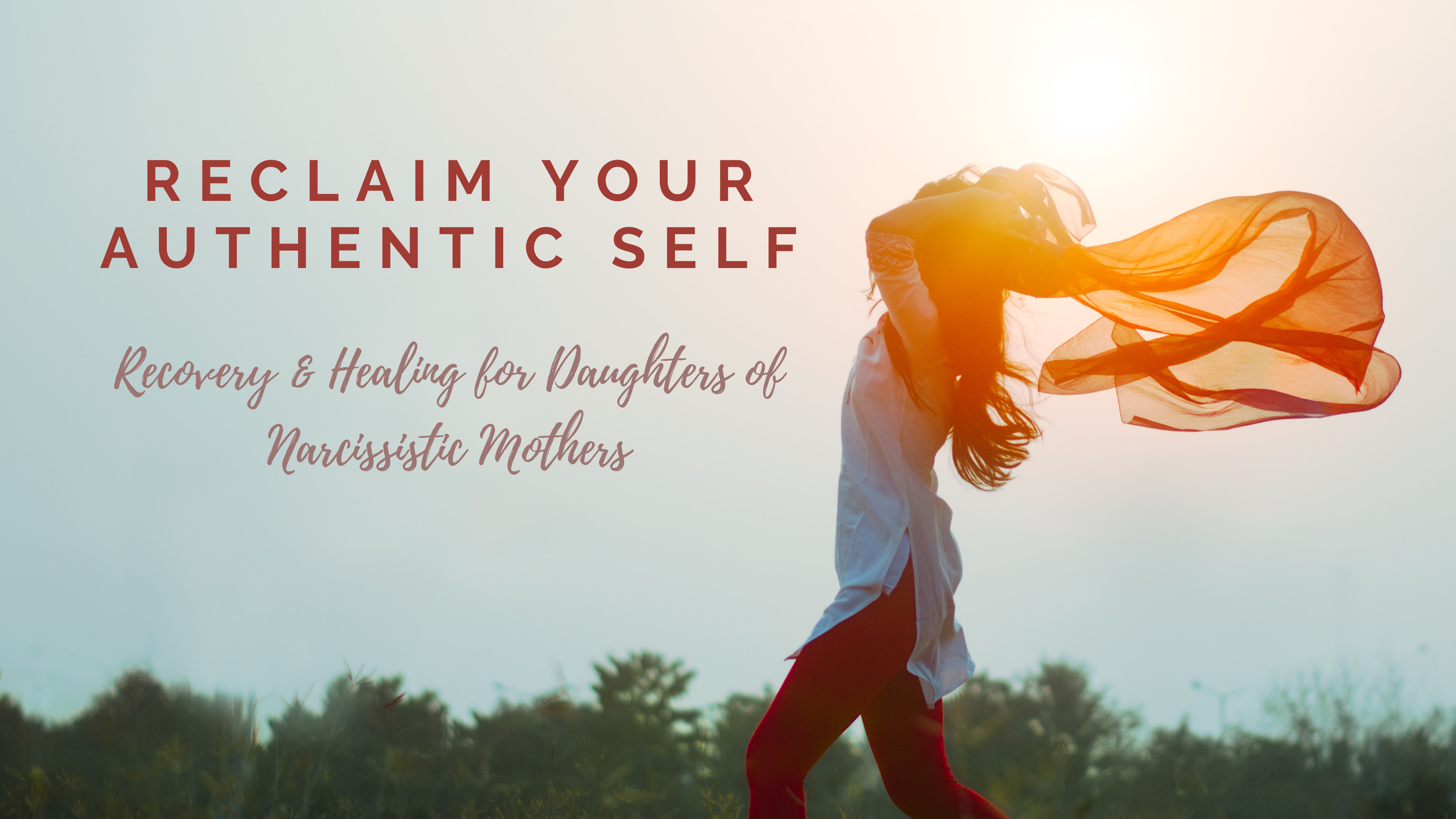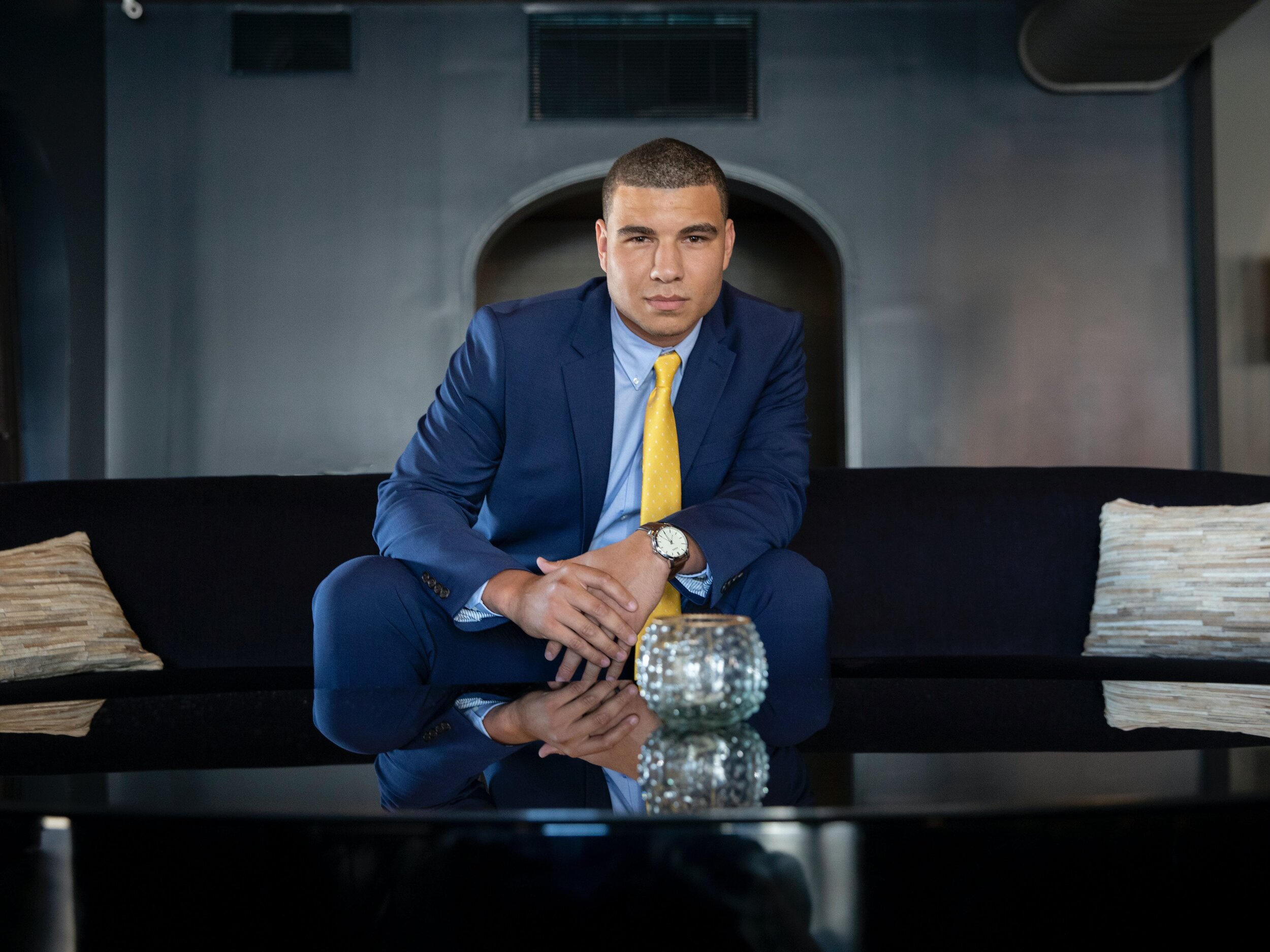HEALING THE WOUNDS OF NARCISSISTIC ABUSE
Do you have trouble saying “no” to your partner?
Does your partner/friend/family member get angry when you set limits?
Is it hard for you to do the things YOU enjoy - especially if they don’t coincide with your partner’s wishes?
Do you often give in just to “keep the peace”?
Do you feel like your partner doesn’t listen?
Does your partner/family member deny your reality?
If you complain, do they get angry or abusive, telling you that you are wrong, stupid, “over-sensitive” or fussy?
Do they play the victim by telling you that you are hurting them or being hypercritical? Or by simply denying it?
Does your partner/family member belittle, humiliate, blame or ridicule you?
Do you blame yourself for things in your relationship that are not your fault?
Do you feel like you are in a “fog” when you try to talk about your own needs or set boundaries with your partner?
Is your self-esteem now at an all-time low?
THESE COULD ALL BE SIGNS OF NARCISSISTIC ABUSE.
Narcissistic abuse by someone close to us can also cause symptoms such as:
Guilt, shame and self-blame - a feeling that you are not good enough
Feeling isolated and alone, withdrawing from others, losing friends
Loss of trust
Loss of enjoyment in life
Exhaustion
A constant feeling of anxiety or “walking on eggshells”
Feeling sad or hopeless, like no-one is on your side
Self-soothing with alcohol or food
Prolonged and systematic abuse can lead to Complex Trauma, including symptoms such as flashbacks and hypervigilance
MOVING FORWARD
It can be a shock to come to the realisation that what started out with so much hope and goodwill has developed into a relationship that is exploitative and damaging.
You don’t want to believe that your partner, friend or family member is treating you badly or that they don’t really care about you.
After so many years of loyalty, you would rather think you’ve made a mistake. That if you just tried a bit harder you would get the love you deserve. That if you stay loyal and kind, you will eventually be rewarded.
You keep hoping that your loved one’s behaviour will change.
Unfortunately, a relationship with a narcissist does not work this way.
They won’t change unless there is something in it for them.
MANIPULATION
The manipulation in a relationship with a narcissist can be quite subtle.
Causing you to doubt yourself, they will often deny your version of events and undermine your reality. It can be like living with a skilled prosecutor who wants to win the argument at all costs, including your peace of mind.
It can be easier just to give up.
People in an abusive relationship often feel controlled or dominated, like they don’t matter.
Abusive relationships involve belittling and humiliation, leaving you feeling ashamed and worthless. Emotional abuse in relationships leaves victims with feelings of low self-esteem, shame and hopelessness.
People who are in relationships with narcissists often blame themselves, because they feel like they are “not good enough” or that they’ve done something wrong.
Many people who have suffered in abusive relationships blame themselves. They have been so belittled and humiliated that they end up feeling like they deserve to be treated badly.
Recovery from abuse can take a long time.
Survivors of narcissistic abuse can take years to come to the realisation that their relationship has ultimately come at the cost of their sense of self.
People who experience narcissistic abuse often end up feeling lost.
They lose their sense of self because their narcissistic partner has dominated and oppressed them for so long that they have forgotten who they are.
Perhaps it didn’t feel safe to say no. To protect yourself you said yes, when you didn’t want to. But now you don’t know how (or when) to assert yourself. It’s been much easier to give in to your narcissistic parent or partner because they have dominated and intimidated you for so long. But that’s no way to live.
Many people are wounded in relationships.
We all make mistakes.
Relationships can be hard work. Arguments are normal for everyone, but a partner who really cares about you will work to repair the damage.
Healthy relationships do not run on contempt, anger, blame, belittling or humiliation.
They do not involve one partner doing all the heavy lifting and giving up their dreams.
They should not resemble battlegrounds where it feels like our self-esteem is at stake.
We sometimes choose someone who is not healthy for us without realising it. Only after all the pieces fall into place do we understand what is happening. It’s not in the narcissist’s interests for us to realise our mistake. So they cover up their self-centredness for the early period, love-bombing, flattering and presenting a false front until we are seduced and it’s too late to turn back.
People who have grown up with narcissists are much more vulnerable to these strategies.
Children of self-absorbed parents believe that a one-sided relationship is all they deserve. They learn not to expect reciprocity, or a partner who really cares for them. Unfortunately, they are used to being exploited.
As we slowly come to realise that our partner or friend is not really there for us, we can feel anger and grief. Someone we love is more concerned with their own needs than with our feelings and our wellbeing.
It can be a shock.
Sometimes we blame ourselves. But it’s important to remember that you haven’t done anything wrong.
When our reality is denied in a relationship, it can feel like we don’t have a voice.
It feels like no-one understands or cares.
There is hope.
Therapy for narcissistic abuse can support you and encourage you to develop your own voice.
Through therapy, you can learn to understand yourself and develop compassion for the wounds you have suffered in trying to make a relationship with a narcissist work.
Counselling can help you learn about yourself and will allow you to resolve the deep pain and anger that you feel about your relationship. It can help free you from the enmeshment and confusion of trying to relate to a narcissist and help you re-connect with your authentic self.
Through therapy with a compassionate, experienced therapist you can get your life back and enjoy relationships again.
How Does It Work?
Counselling for narcissistic abuse helps by encouraging you to develop self-awareness around your needs.
The aim is to develop better boundaries and communication skills and a strong and healthy sense of self, so that you will no longer be victimised by those who are manipulative and self-centred. Through working with an experienced therapist, you will learn to understand yourself and how to have what you deserve: a healthier and more reciprocal relationship.
AN EXPERIENCED THERAPIST WILL HELP YOU FEEL SAFE.
In order to heal the deep wounds of narcissistic abuse, your therapist will need to help you access the pain and distress which is buried inside you. They will allow you to sit with strong feelings and learn to experience them without being overwhelmed. You will become stronger and more resilient as you learn to understand and develop compassion for your wounds.
Hi, my name’s Amanda and I am a social worker who has worked with many people recovering from toxic relationships.
Some of my clients have had narcissistic parents or partners, workmates, bosses, friends or siblings.
Often they just want someone who understands their pain and is on their side. As someone who grew up in a narcissistic family, I can understand your struggles.
My practice in North Fitzroy is a safe, non-judgemental space where you can feel free to talk about your hopes and fears and allow yourself to be vulnerable in order to heal.
As a social worker, I worked with carers and families in the mental health system, where I saw the trauma of families struggling with the most serious mental illness. I understand how hard it can be. I also understand that the needs of carers and those who are in relationship with narcissists often get ignored.
Recovery from narcissistic abuse is not just about resolving pain.
Counselling will allow you to finally access your intrinsic healing powers and begin the rewarding process of self-discovery, healing and growth.
I will help you discover a new, more connected and more joyful self.
You May Still Have Some Questions About Counselling for Narcissistic Abuse
WHAT IF THERAPY TRIGGERS ME OR I FEEL OVERWHELMED?
Safety is an important consideration for all survivors of narcissistic abuse and toxic relationships. Rest assured that I will support you and ensure that you feel safe before we start to explore some of the more difficult material that must be resolved in order for deeper healing to take place. The therapy will be paced at a tempo that is individually targeted and right for you.
Do I need to forgive?
Recovery from narcissistic abuse is NOT about blame or forgiveness. It will be up to you whether you have the emotional space to forgive. Although for some people, forgiveness is part of moving on, everyone’s healing journey is unique. Whilst therapy is NOT about blaming others, it will give you a new perspective on your experiences and allow you to understand the reality of your relationships. As you reach a new understanding of your partner or parent’s limitations, you will be able to make an informed choice about the way forward. Alongside your growing self-compassion you may start to understand the reasons for other’s behaviour. You may find that you have space for compassion towards those who have caused you pain, but that is something only you can work through.
IT SOUNDS LIKE THIS WILL TAKE A WHILE: HOW WILL I KNOW THAT IT IS WORKING?
Counselling for Narcissistic Abuse Recovery involves developing a trusting, warm and safe therapeutic relationship with your therapist. I will make sure that you can feel safe in exploring your feelings with me. Because people have often been betrayed and exploited in a relationship with a narcissist, trust will be important. The empathetic, caring, non-judgmental and non-shaming relationship that we develop together is what will help heal you. This can take a while to develop and there may be ups and downs during this time, where you might feel stressed or upset. That’s normal for any therapy.
Narcissistic abuse counselling will help you learn to trust again.
You will also learn to understand and have compassion for your responses and your way of managing your relationship. You did what you had to do to survive. I will help you develop tools and strategies to manage communication and set limits in your relationships. The overall aim is for you to develop self-awareness and self-compassion which will help you have the courage to maintain boundaries and nurture more rewarding relationships.
I’VE HEARD THAT THERAPY IS EXPENSIVE – HOW WILL I AFFORD ALL THIS – ESPECIALLY IF IT TAKES A LONG TIME?
As a social worker, I try to keep my prices as low as possible. However due to rising costs associated with running a busy practice, I am unable to bulk bill at this time. I offer Medicare rebate-able sessions to eligible clients. I am also a registered NDIS provider, so if you are a participant, you can have trauma therapy included in your plan.
If money is providing an obstacle to beginning (or continuing) therapy, we can discuss how to make it more affordable for you.
WHAT CAN I EXPECT FROM SUCCESSFUL narcissistic abuse COUNSELLING?
The aim of therapy is to help you develop a richer, more joyful and more connected life.
It can be a shock to realise that your relationship has become (or always was?) exploitative and damaging. Often people will need to come to terms with the reality of their situation and the nature of the person they are involved with. This can involve grief, anger, disbelief, self-blame and sometimes, despair.
Counselling for narcissistic abuse recovery is designed to help you develop a stronger sense of self and understand yourself and your relationships. My aim is to help you develop greater self-awareness and self-compassion. As you gain a stronger and more authentic relationship with yourself, you will be less vulnerable to the manipulation and grandstanding of narcissists.
Through practice and exploration, you will also learn to develop better boundaries which will allow you to protect yourself, find more fulfilling relationships and enjoy them. Therapy will help you learn new skills to cope with life’s challenges and recognise when others are impinging or trying to control or manipulate you. We will work together on raising your self esteem and on helping you get more of the things you want out of life.
I will work with you to develop a deeper and more compassionate relationship with yourself, where the pain and shame that you have experienced in the past will no longer dominate.
As you develop this new and rewarding conscious awareness and self-compassion, you will be ready to create a life that is truly worth living.
Psychotherapy for Narcissistic Abuse Recovery is an investment in you and your future.
Without it you may stay stuck in relationships that are painful and unhealthy.
Without it you may never discover your true self or your ability to pursue a fulfilling and joyful life and to have the relationships you deserve. With targeted and individualised therapy you can heal the wounds from your relationship and become the self you were always meant to be.
What could be more important than that?
BOOK YOUR FIRST APPOINTMENT HERE
Recovery Coaching Packages for Healing from Narcissistic Abuse
WHAT IS RECOVERY COACHING?
Recovery coaching is individually tailored and designed to support and enhance your recovery journey. It involves an initial assessment of where you are in your journey, and an analysis of the steps that need to be taken for you to progress. In my coaching, I will work with you on your recovery goals to implement achievable and concrete changes in your life.
Recovery coaching will help you
create healthy boundaries
have better relationships
combat perfectionism
find your true direction and purpose
improve self-esteem
develop better communication skills
let go of judgementalism and self-blame
























